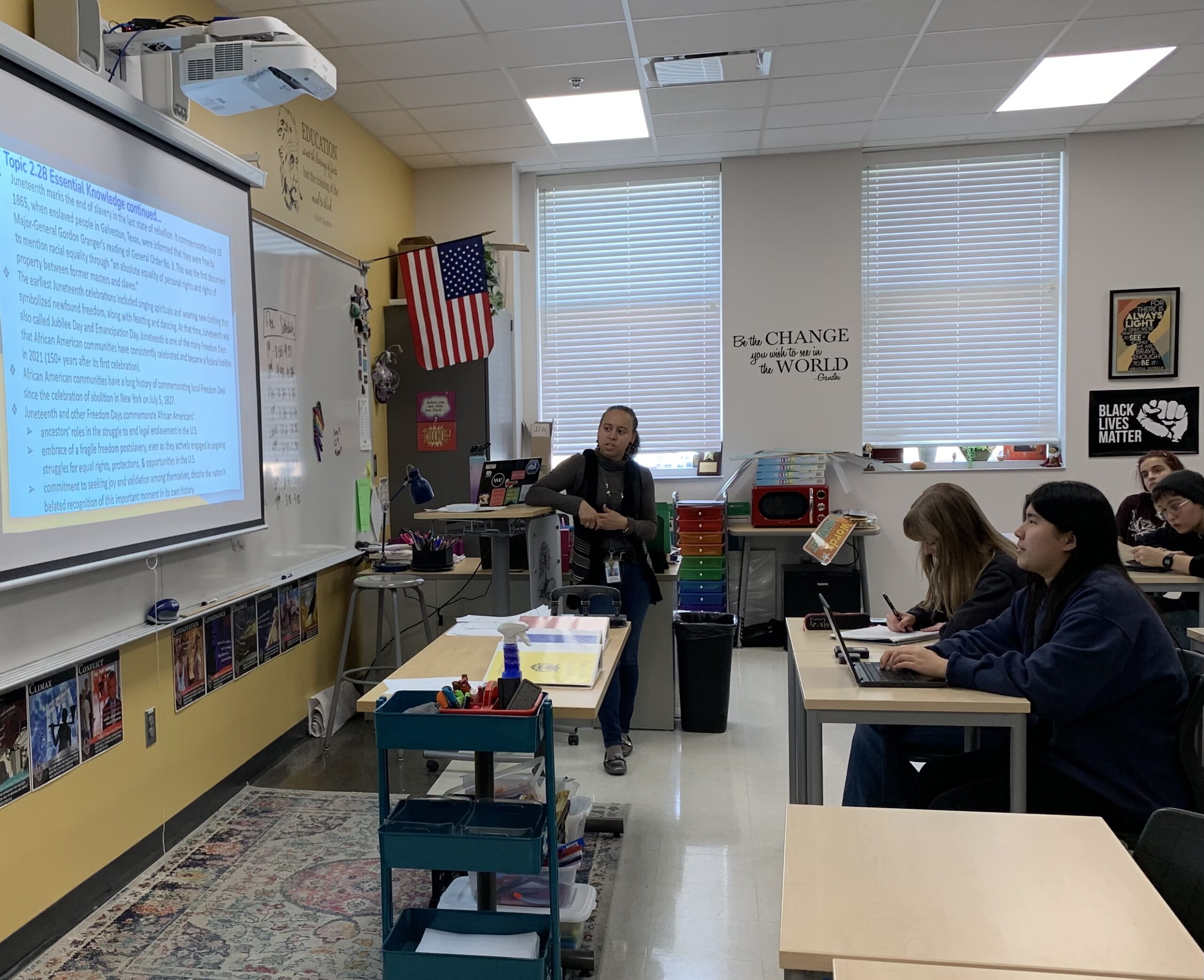The 2023-24 school year is currently serving as the pilot year for the new AP African American Studies course. The pilot model means that all students currently enrolled will receive an honors credit for the class, though students will be eligible to earn AP credit next year.
The current course contains four units: the origins of mass forced migrations of Africans, enslavement and resistance movements, Emancipation and the life of newly freed people, and the Civil Rights movement. These units follow along with the AP textbook Freedom on my Mind: A History of African Americans, published by Bedford/St. Martin’s press.
The course takes an interdisciplinary approach to African American Studies, “incorporating primary sources, history, geography, art, speech, writing,” Erica Kinney, the teacher of this new course, said.
The course is the first AP class Kinney, the school’s reading specialist, has taught. “I have never taught an AP course before,” Kinney said. “I was equally terrified and excited to take it on.”
Many students taking the new course were led by their own curiosity.
“I signed up for this class so I could learn more about important Black history,” senior K Omba, who uses they/them pronouns, said. Omba also said that their curiosity was piqued by the possibility of learning things that “the required courses wouldn’t teach us.”
As part of their studies, students were assigned a mask project at the end of September for which they had to represent an African empire through their drawings.
Junior Xiao Kearon created an Egyptian-inspired mask. “I included images like constellations, the eye of Horus, and early Egyptian boats,” Kearon said.
Students’ work is currently on display in the English department hallway on the second floor of the C building.
Kinney compiled a list of anonymous student responses showcasing what students think the school’s faculty should know about the course.
“I think that the most interesting aspects of this class are tracing the cultures, practices, and traditions of modern African American communities back through history and discovering how they developed,” one student wrote.
Some students enrolled in the class in order to learn more about the places and people they descended from.
“I value learning about my people, and I think it’s important for me to know history that isn’t sugar coated,” junior Louange Nsengi said.
Nsengi also openly criticized the lack of Black History within the district’s curricula. “I’m tired of constantly learning about the same history that only favors one race.” Nsengi said.
Students in the class have made it clear that anyone with any kind of curiosity or connection should sign up.
“Anyone can sign up for this class,” senior Wen Rainey said. “I cannot see how this course could possibly be tossed aside in modern society.”
Many other AP African American Studies students shared Rainey’s sentiment, encouraging those who aren’t in the pilot program to enroll.
“People who are genuinely interested in learning about African American history, literature and influences on America should take this class,” senior Ella Smith said. She added that the course covers Black history at a much deeper level than any class she had previously taken at Chapel Hill High School.
AP coordinator Karyn Dickerson said it is unclear whether other high schools within the district will offer the course once next school year; she did add, though, the pilot course has been going well.
“We have seen such great success,” she said. “Students develop analytical and communication skills while exploring rich and diverse African American history and culture.”
